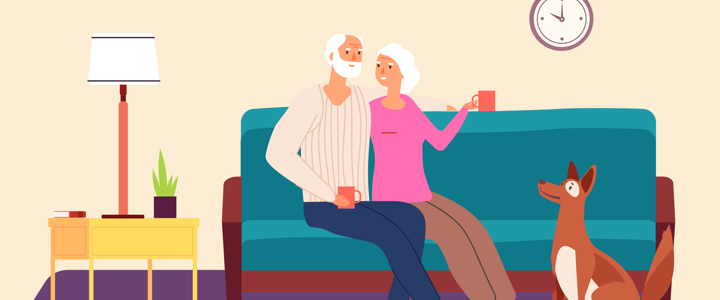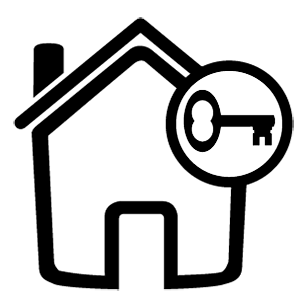Pets

Contents
- Things to consider
- Conditions of keeping a pet
- What our tenancy agreement says about pets
- Responsibilities
- XL Bully dog ownership
Having a pet can hold a huge value and we feel that it is important to promote responsible pet ownership.
Here you can find guidance and advice for adding a pet to your family, and an overview of our policy for pets.
To request permission to have a pet in your home, please fill in the online form below.
Request permission to have a pet
Things to consider
Pet ownership can bring you comfort and companionship, but also the responsibility of looking after another. Before introducing a pet to your home, consider:
- are you prepared for the time and money investment having a pet brings?
- will you be able to care for them during their whole life?
- are you able to meet their exercise needs?
- can you meet their emotional needs?
- will you be able to properly train your pet and prevent any anti-social behaviour? (for example, noise)
- is your home suitable for them? Can suitable care, shelter, food and water be supplied?
- if you have children, will your pet be suitable around them? What is their temperament like?
- will you be able to look after medical conditions, whether it be worming, de-flea drops or specific medication if prescribed by a vet?
- have they been vaccinated, spayed, and/or neutered?
- who will look after them if you are unable to? (for example, on holidays or if you're unwell) Can friends or family help or is there a kennel/cattery you could use?
- will you be able to factor them into your daily routine and any emergency plans that you have in place?
- if you are thinking of a dog, have they been microchipped? (dogs must be microchipped before the age of eight weeks)
Dogs must also wear a collar in public to display its owners name and address. The collar doesn't need to have the dogs name, in fact leaving their name can help against theft as the dog may respond to their name. For full information please see Article 2 of the Control of Dogs Order 1992.
Conditions of keeping a pet
You are responsible for your pet’s welfare and it is expected, without question, that you will act responsibly in relation to the welfare of your pet, other members of the household, visitors, the surrounding community, and yourself.
In addition to this:
- please keep us informed of how many pets are kept at your home
- make sure your pets are well behaved to avoid causing nuisance or anti-social behaviour in your community
- dogs must be appropriately microchipped
- dogs legally must wear a collar that displays their owner’s name and address when in public, and walked on a lead whilst in built-up areas
- dogs must be kept unchained
- pet cats should be microchipped as this improves chances of them being returned to you if lost
- breeding or sale of animals is not allowed in your home
- boarding kennels cannot be run from your home
- you are responsible for your pet's behaviour
- any damage caused by pets will be rectified and paid for by the pets owner
- any litter trays are regularly cleared and cleaned
- communal areas must be kept clear of pet housing (such as hutches) and litter trays for safety reasons
- pets should have proper care in place for them if they will be alone for long periods of time
- any fouling from your pet should be cleaned straight away and properly disposed of
- your pet should be kept under supervision when they are in communal areas
- additional items needed to keep your pet safe and under control (such as additional fencing) must be sourced and paid for by yourself
Find out more about this from the Animal Welfare Act 2006
What our tenancy agreement says about pets
Anyone living in a house or bungalow may have one domestic pet without needing to ask for permission from us, though we do ask that you inform us so we can make sure your households records are up-to-date.
If you live in a flat, upper-maisonette, or would like more than one pet, do fill out the Pet Permission Request Form first. We will not withhold permission without reason, but some conditions must be considered, including:
- the size of your home

- what kind of home you live in
- your location
- what kind of pet you are planning to keep
- access to open spaces
The types of pets we generally would consider suitable to provide permission for are:
- Domestic dogs
- Domestic cats
- Non-venomous/poisonous reptiles, snakes, spiders or insects
Applications are assessed on a case by case basis, though it is unlikely that permission would be granted for:
- venomous animals
- farmyard animals
- wild animals
- banned animals (unless a court order has exempted them)
- cockerels
As a pet owner, you must ensure that your pet (or pets) do not cause nuisance or anti-social behaviour in your community.
Any breed of dog specified as dangerous in the Dangerous Dogs Act 1991 or any animals registered under the Dangerous Wild Animals Act 1976 (unless a court order has exempted them) must not be kept at or brought to South Cambs homes.
Responsibilities
You have a legal responsibility to provide suitable care for your pets. The Animal Welfare act outlines five needs areas that must be met for your pets. They must be:
- given a suitable environment
- have a suitable diet
- able to exhibit normal behaviour patterns
- housed with, or apart, from other animals
- protected from pain, suffering, injury or disease
XL Bully dog ownership
Following a concerning rise in attacks and fatalities by XL Bully dogs, the government has added this breed to the list of dogs banned under the Dangerous Dogs Act 1991. We are asking for any residents who currently own an XL Bully dog to get in touch with us so we can work with you to ensure all legal requirements are adhered to.
As at 31 December 2023 it is against the law to:
- sell an XL Bully dog
- abandon an XL Bully dog or let it stray
- give away an XL Bully dog
- breed from an XL Bully dog
- have an XL Bully in public without a lead and muzzle
If you have a Certificate of Exemption for your XL Bully dog, you must have third party public liability insurance for your dog.
We want to work with you to ensure you can keep your pet without implications. We can signpost you to support to help you comply with the regulations.
Please call us on 01954 713000 and ask to speak to a member of the housing enforcement team or email us on duty.housing@scambs.gov.uk to notify us of your XL Bully and we can offer you guidance and any reassurance as required.
If we are made aware of any dogs which are non-compliant to the government rules, then we may have no choice but to report the matter further, which in turn could result in affecting your tenancy if left unresolved.

